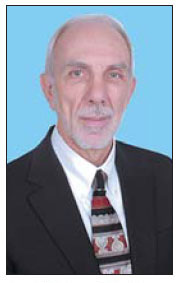Energizing the world
Updated: 2013-02-07 07:37
By Zhao Shengnan (China Daily)
|
|||||||||||
My China Dream | Jon Michael Davis
Progress on energy and environmental solutions anywhere in the world has global significance and China is better suited to achieve this than any other place, says Jon Michael Davis, President and CEO of the National Institute of Clean-And-Low-Carbon Energy.
This belief is what encourages him to work for the Beijing-based institute under Shenhua Group, China's key State-owned coal-based integrated energy enterprise. He came on board as a foreign expert under the country's "Global 1,000 Talent Program" in 2011.
"We will continue to use fossil energy, we don't really have a choice. We may think we do, but it is not a practical option," says Davis, 65. "The challenge is how can we use the energy sustainably. Meeting that challenge takes investment, long-term thinking and high-level commitment.
"We need to continuously find new ways and technologies to reduce emissions We all breathe the same air and progress here is progress everywhere," he says.
Burning fossil fuels for energy is one of the main causes of global warming, but it is also fuel for almost 85 percent of the world's energy, according to US Pacific Northwest National Laboratory.
Davis, former associate director of the laboratory, says: "Chinese leadership does understand that as China develops, as any nation develops, we must protect the environment. They also understand the need for increasing the efficiency of the production of energy."
 |
|
Jon Michael Davis, |
Beijing has announced plans to increase non-fossil fuel based energy from 11.4 percent in 2015, up from 8.3 percent in 2010.
China is ranked sixth in world energy efficiency among major economies, followed by the United States and Canada, according to the first-ever International Energy Efficiency Scorecard released in July 2012.
As the second-largest economy in the world, China has the financial resources to invest in research and innovation and such investment is already happening, says Davis, and some solutions are coming from his institute.
What is needed is not a miracle but the "dedication of groups of people", "collaboration between the finest universities, huge businesses like Shenhua, and researchers around the world".
"We are doing that," he says.
Lai Shih-yaw, also a member of the "Global 1,000 Talent Program" at the institute, says the market-driven research encouraged by Davis has introduced the best international practice to the institute.
"It is a breakthrough here as most of the teams in China only focus on their own research plans without market adjustment, according to the ever-changing market's needs," he says.
Davis says he aims to improve the relatively poor innovation capability in China through changing traditional vertical environment here.
"Innovation typically occurs in massively horizontal environment. Everybody in the organization can present an idea. The organization can sort ideas and get the best idea, and then form a team around the ideas based on the idea itself. "
Gu Ping, one of his assistants, says Davis values innovation capabilities development very much and has applied for funding from the Shenhua Group to improve staff innovation.
Around 44 percent of the institute's officers are part of the Six Sigma training program, a quality improvement process originally developed by Motorola, she says.
"I believe it is faith that motivates Mr Davis' endeavors in China. He had already retired as a successful official and expert in the US and he is not after fame and fortune," Gu says. "He is really trying to do something on energy efficiency and environmental protection for China and the world."
Contact the writer at zhaoshengnan@chinadaily.com.cn.
Today's Top News
Police continue manhunt for 2nd bombing suspect
H7N9 flu transmission studied
8% growth predicted for Q2
Nuke reactor gets foreign contract
First couple on Time's list of most influential
'Green' awareness levels drop in Beijing
Palace Museum spruces up
Trading channels 'need to broaden'
Hot Topics
Lunar probe , China growth forecasts, Emission rules get tougher, China seen through 'colored lens', International board,
Editor's Picks

|

|

|

|

|

|





